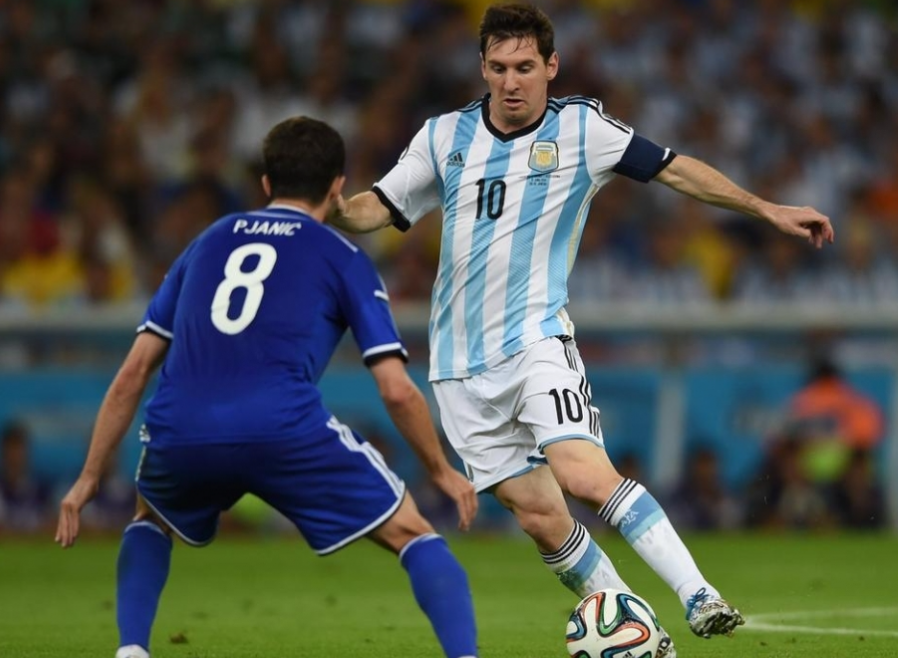
For football fans, the World Cup is a happy year. Because the palace football game can bring passion and emotion, of course, and loneliness and sadness, but even so, it can be full of poetry.
Friedman famously said that "the world is flat." He is talking about the profound impact of globalization on economic, social and political life. Sports globalization is also an important part of globalization. World sports promoted in multiple dimensions break down the barriers of regional environment and humanity, so that sports of different regions and nations can integrate and absorb each other with rich personalities, and make human sports culture colorful.
The football culture shown by the World Cup with no discrimination, no force and only rules is not expected to become the best footnote of "the world is flat".
Friedman wrote "The World Is Flat", intended to explain that globalization is an irresistible trend, and from modern football, we are increasingly seeing the impact of capital transactions, globalization and the Internet on it. Never has it been closer to an icon shaped by capital and money than it is today. In some football developed countries, football has even penetrated into every aspect of People's Daily life, and the quadrennial World Cup has become a national carnival.
The World Cup deserves the respect of mankind. Not only because of the heroes who destroyed the city on the football field, but also because people of different races, different colors, and different perspectives came together, far from war, and fully released themselves in the observance of common rules.
In the past World Cup, the opening ceremony showed the cultural diversity, which left an unforgettable memory. Such as the Mexican style of the 1986 Mexico World Cup, the blue romance of the Italian summer in 1990, the "Wild West" of the 1994 United States World Cup, and the unique "Uuzula" of the 2010 South Africa World Cup, etc., are a long time to remember.
The World Cup theme song reflects the cultural characteristics of various styles. "Land of Glory", the theme song for the 1994 World Cup in the United States, is a blend of folk and rock music. The 1998 French World Cup theme song "Cup of Life", due to Ricky Martin's interpretation, swept the world, let people's blood boiling.
I remember that after the 1998 World Cup, Ricky Martin sang at the Dalian International Fashion Festival, and the 60,000 audience at the party shouted wildly, which was a crazy scene that ultimately should be attributed to the cultural charm of football. Since the first World Cup theme song in 1986, there has not been one more than the Cup of Life.
Everyone has their own World Cup, but the World Cup is still a unique World Cup. Because of the "hand of God" and "even five people", the 1986 World Cup became a "one man World Cup", and Maradona was crowned king. Maradona became a national hero for beating England. The impact of the World Cup on politics, economy and even personal life cannot be underestimated.
Beckenbauer said: "It's not footballs that roll on the World Cup turf, it's gold." All the carnival of football will start in the name of football and end in economic calculation, which is the whole sense of the World Cup. Indeed, the World Cup has become more than just a carnival of football.
In 10 World Cups over the past 40 years, only France and Brazil have won the tournament with seven wins in 1998 and 2002, respectively, and France suffered a brutal penalty shootout in the quarterfinals that year.
In the other eight contests, the winner has more or less encountered some twists and turns, so it is not the bright smile at the beginning, and the best smile in the end.
In the 1982 World Cup in Spain, Hungary beat El Salvador 10-1 in their opening match, setting a record for the highest goal scored in a single match in a final to date, but they never qualified for the group.
Something similar happened at the 1986 World Cup in Mexico. That year, Denmark beat Scotland 1-0, Uruguay 6-1, and Germany 2-0 in the group stage, many people thought that the championship was beckoning to the Northern European team, but they lost 5-1 to Spain in the eighth finals, and their progress was ended.
In many cases, the winner of the championship is often an underdog and easy to ignore, such as Italy in 1982.
They drew all three games in the group stage, only to compare the number of goals before beating Cameroon with a one-goal "advantage". After entering the semifinals, the Italian team was transformed, and made great strides in the competition with Argentina, Brazil, Poland, Germany, and won the cup. At the 2010 World Cup in South Africa, Spain lost their opening match 1-0 to Switzerland and have since won four of their six matches 1-0.
But this is the team that scored only eight goals in seven games, and finally reached the top of South Africa.
The upcoming Russian World Cup is the continuation of previous games, hoping that the new king to reach the other side of the victory is people's beautiful yearning, but the actual situation is not ideal, then may be subject to a variety of factors, in order to finally smile, before may have to experience some unexpected setbacks.
For those teams that have the potential to compete for the title, it is not only about the present, but also about the future. A group game may be insignificant, but the knockout stage of the key matches can not be lost.
In the group stage of the 1954 World Cup in Switzerland, the Bundesliga played a substitute against the then favourites Hungary and lost 8-3. But in the final, they went all out, beating their opponents 3-2 to win the Rimet Cup for the first time.

